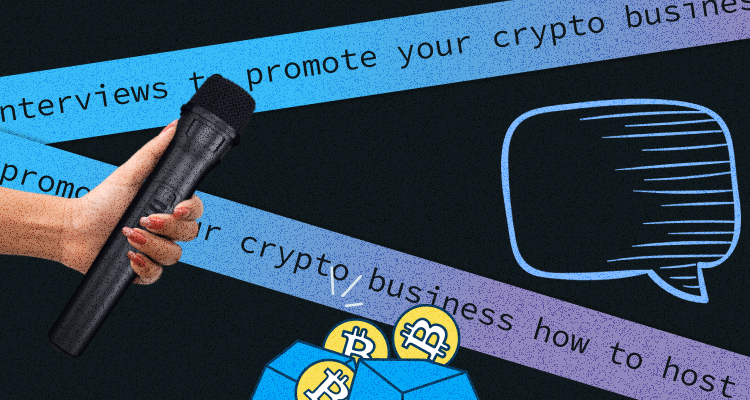'I Never Learned Anything While I Was Talking' - Larry King
In the fast-paced world of cryptocurrencies, making your crypto business stand out is super important. That's where hosting interviews comes in – it's like a secret weapon to get noticed and trusted.
This article shows you how to use interviews for your crypto business. It doesn't matter if you're a newbie on the block or a crypto pro – we have tips to help you make interviews work wonders for your business.
We'll cover everything from picking the right people to chat with to ensuring your questions are super interesting. By the time you're done reading, you'll be armed with the know-how to interview your crypto business's best friend.
Types of Interviews
Let's check on the various types of interviews that can help you share your insights and connect with your audience.
- Informational Interview
Imagine you want to share breaking news about your crypto venture. An informational interview is like a spotlight on the latest happenings. You chat with someone who was right there when it all unfolded or an expert in the field. The goal? To bring out the cold, hard facts fairly and accurately.
- Analytical Interview
Ever thought about discussing big issues facing the crypto world? An analytical interview lets you dig deep into important matters. You talk with experts, hash out complex ideas, and explore different viewpoints. It's like dissecting a puzzle with multiple pieces. More voices mean a richer conversation, but watch out for passionate disagreements that can become heated debates.
- Portrait Interview
Imagine getting to chat with a well-known figure in the crypto space. A portrait interview is your chance to showcase your journey and achievements. Think of it as introducing them to their fans. Instead of diving into specific topics, the focus is on showing who they are behind the scenes.
- Blitz Survey
Sometimes, you only need a quick snapshot of opinions. A blitz survey is like a lightning round of 2-3 questions. This type pops up in news about politics, culture, or sports. After a crypto conference, for example, you might catch a few top figures for a rapid-fire Q&A.
- Mass Blitz Interview
Want to know what the crowd thinks? A mass blitz interview is like taking a quick poll from many folks. You ask similar questions to many people, often those just passing by or at an event. It helps you gauge how the public reacts to your crypto endeavors.
- Free Conversation
Imagine having an informal chat with a well-known crypto figure. This type of interview is like having coffee with a friend. You discuss whatever comes up, from daily life to personal insights. Only seasoned pros can smoothly steer the conversation while getting honest and unscripted responses.
- Investigative Journalism
Suppose you're investigating something big in the crypto world. This interview requires careful prep. You aim to uncover hidden facts that shed light on a specific issue.
How to Make your Interview Work
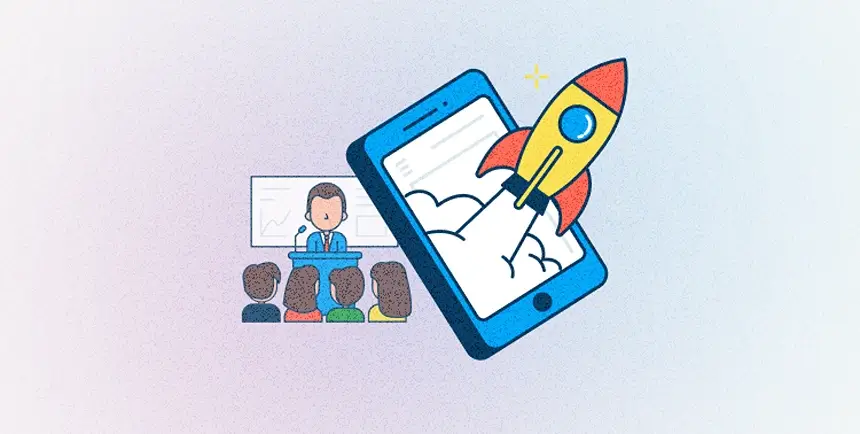
Let's break down the key elements that make for a great interview:
- Interview Preparation
Getting ready is half the battle. Before the interview, research the person you'll speak with or the topic you'll cover. This way, you'll come across as informed and respectful. Plus, it helps you create thoughtful questions that keep the conversation flowing.
- Open-Ended Questions
Imagine you're asking questions that can't be answered with a simple "yes" or "no." These questions encourage the interviewee to share more details and insights. They open the door to a rich and engaging conversation. Instead of asking, "Did you enjoy the conference?" you might ask, "What stood out to you the most at the conference?"
- Aim for Emotion
People remember feelings more than facts. When you're interviewing, try to tap into emotions. Ask about experiences that made them excited, frustrated, or passionate. This makes the conversation more interesting and helps your audience connect on a deeper level.
- Emotional Recording
As you chat, pay attention to the emotions coming through. If your interviewee expresses excitement, curiosity, or concern, ensure those emotions come through in your recording. Emotions add a layer of authenticity and relatability that can make your interview stand out.
- Achieving Your Interview Goals
Every interview has a purpose. It could be to inform, entertain, or inspire. Keep your goals in mind as you steer the conversation. If you aim to educate your audience about a new crypto trend, ensure the interview covers the necessary details. If you aim for a heartwarming story, guide the conversation toward those touching moments.
How to Approach Influencers for Your Interview
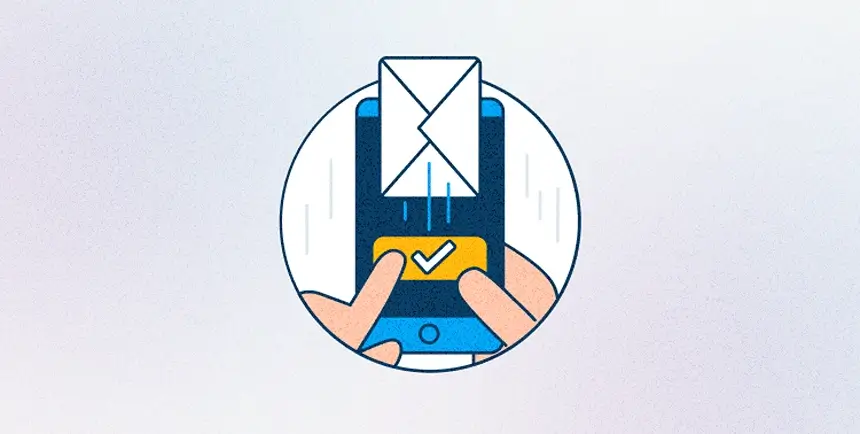
So, now let's discuss how to reach out to the influencer you want to interview. This can feel a bit tricky, like trying to crack a secret code. You're emailing someone you might not know well, asking them to team up with you.
The trick is to keep your email short and informative. Busy folks don't have time to read long emails. Plus, you want to prove you're legit, not some random person with sketchy intentions.
Give them a quick idea of who you are so they know you're trustworthy. Point them to where they can see your work to judge its quality and decide if it matches their style.
Also, show them some love. This is something people often forget. Drop a line like, "I really liked that part in your video," or "That line in your last blog post was spot-on." It helps them see that you're genuinely interested in their content and not just trying to use them to reach more people.
Here's an example of what you could say:
"Hey there, David! I've been following your awesome content and am a content marketer at XXX. We're a small startup that helps people to ……. I've shared some of your genius advice with our audience before, which is totally true – I linked to your stuff!
Since all our customers are kick starting their own businesses, I make it my mission to share the best tips out there to support them on their journey. And that's why I'm reaching out to you. This week, I'm diving into the world of influencer outreach. Any chance you could share some of your ideas?
By the way, how do you prefer to be contacted? I'd be thrilled to share your thoughts with our audience of …… Thanks a bunch for your time, and keep rocking that fantastic content.
Cheers!"
See, this text looks friendly and straightforward. Remember, this is all about building a connection and showing that you genuinely value their insights.
Research Before You Interview
Imagine, you're about to interview someone, but you haven't done any research. It's like showing up to a game without knowing the rules – not a good look, right?
So, first things first, dig into the topic you'll be discussing and learn about the person you're interviewing. Let's say you're interviewing a crypto expert. If you walk in without understanding the basics of cryptocurrencies, it will be tough to ask meaningful questions. You want your audience to really get what your interviewee brings to the table.
For example, let's talk about NFT. If you're chatting with a NFT pro, make sure you know the difference between NFTs and digital art in general. If you mess that up, it could give off the vibe that you haven't tried to understand their world. And that might affect how they view you down the road.
Keep an eye on the news too. If there's something major happening in the crypto world, know about it.
And here's a cool tip: check out a bit about their personal background, if they have a family, hobbies, or interests. It's like finding common ground. You can start with some friendly chit-chat before diving into the main talk. It helps break the ice and makes the conversation flow smoothly.
How to Ask Great Questions
"All I've tried to do is ask the best questions I could think of, listen to the answers and then follow up. I've never not followed up. I don't attack anybody—that's not my style—but I follow up," - Larry King.
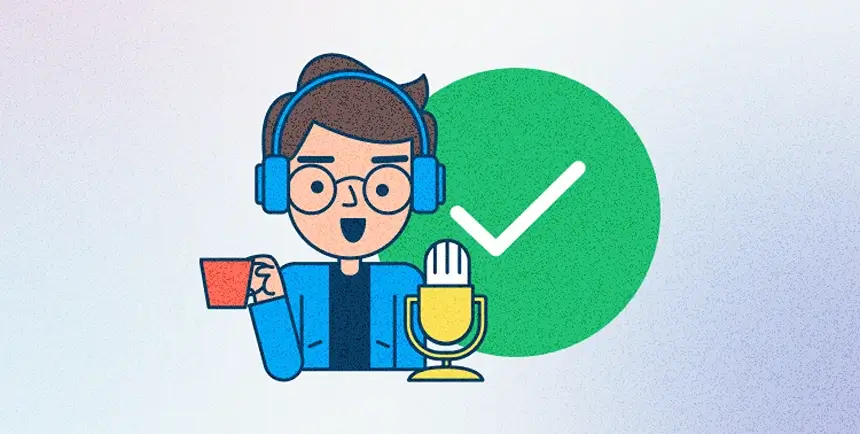
Hosting an interview is like being a tour guide through a fascinating conversation. Let's explore how to make your questions truly shine.
- Before you start, consider who will be tuning in and who your guest is. Tailor your questions to what your audience would love to know and what your guest is an expert in.
- Begin with a friendly question that sets a positive tone. It could be about the guest's background, their journey, or something they're passionate about.
- Mix up your questions. Ask some light, fun questions to keep things engaging. But don't shy away from diving into deeper, thought-provoking topics too.
- Imagine your conversation as a story. Start with an introduction, ease into the main topics, and finish off smoothly. It's like taking your listeners on a journey.
- Show genuine interest in your guest's responses. Listen carefully; if they mention something intriguing, don't hesitate to ask follow-up questions. These questions can't be answered with a simple "yes" or "no." They encourage your guests to share insights and stories, making the conversation more engaging.
- Find common ground with your guest. Mention something you both relate to or appreciate from their work. It helps build rapport and makes the conversation more enjoyable.
- Sometimes, the conversation might take an unexpected turn. Be ready to adapt your questions based on how the chat evolves.
Having a list of questions is great, but don't be afraid to let the conversation flow naturally. If something interesting comes up, explore it.
Question Examples for Crypto Influencers
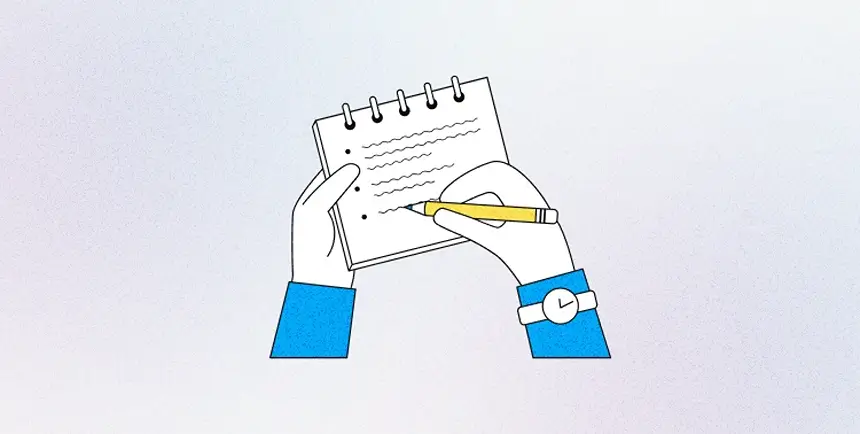
Here is a simple plan and question ideas that you can use when preparing for an interview:
1. Introduction and Background
- Can you share a bit about your journey into the crypto space and how you became involved?
- What sparked your interest in cryptocurrencies and blockchain technology?
2. Current Trends and Market Insights
- From your perspective, what are the most exciting trends or developments in the crypto industry right now?
- How do you see the current market conditions affecting the adoption and growth of cryptocurrencies?
- Cryptocurrencies are known for their price volatility. How do you recommend investors navigate this aspect of the market?
- What strategies do you suggest for managing risk while investing in crypto assets?
3. Discuss the Role of Education
- Education is crucial in the crypto space. What resources or approaches do you recommend for newcomers looking to learn about cryptocurrencies?
- How can individuals differentiate between credible information and potential misinformation in the crypto world?
4. Influence of Regulation
- Regulatory developments have a significant impact on the crypto landscape. How do you see evolving regulations affecting the industry's growth and innovation?
- What are some ways businesses can adapt to changing regulatory environments?
5. Security and Privacy
- Security is a major concern in the crypto world. What are your top recommendations for individuals to secure their crypto holdings and data?
- How can businesses balance the benefits of blockchain's transparency with the need for user privacy?
6. NFTs and Digital Assets
- Non-fungible tokens (NFTs) have gained substantial attention. How do you view the long-term potential of NFTs, and what impact might they have on various creative industries?
- What advice would you give to artists and creators considering entering the NFT space?
7. Your Vision for the Future
- What is your vision for the future of cryptocurrencies and blockchain technology? Where do you see the industry in the next 5-10 years?
- How can businesses play a role in shaping a positive and inclusive future for the crypto ecosystem?
Choosing Between In-Person or Online Interview
1. In-person Interview
When you're setting up an in-person interview, choosing the right location is key. A cozy café could be a great option. You want a calm place for recording but not so formal that it puts everyone on edge. You know, no sterile white walls or awkward silences that make people squirm. That kind of setting doesn't exactly lead to candid, comfortable answers.
2. Interviewing Over the Phone or Computer
These days, a lot of interviews happen over Zoom or other online platforms. The place you choose to sit is super important. Picture it like finding your own little sound bubble. You don't want folks barging in and out while you're talking. Imagine you're in a tiny phone booth or a conference room at work. You'd want a quiet spot where interruptions are at a minimum.
And here's a lesson we've learned the hard way – listen closely if you're planning to repurpose that audio later, like in a course or a blog post. Clear audio is your golden ticket. To achieve that, you've got to find a place where your voice is the show's star, without any distracting background noise.
So, the setting matters whether you're meeting face-to-face or chatting online. Think cozy for in-person talks and quiet for virtual ones. After all, the right surroundings can make your interview shine!
Repurpose Interviews
After the interview, you can use your materials and make some additional content for your blog or website:
Blog Posts: One interview session can sprout not just one but three captivating blog posts. Each post could explore different angles and key takeaways or even delve deeper into specific topics discussed during the interview.
Transcripts that Matter: Don't let those spoken gems go to waste. Your interview transcripts can serve as written content, making it easy for readers who prefer to skim or read at their own pace.
Front and Center Pull Quote: Imagine extracting a standout quote from your interview and proudly displaying it on your website's front page. It's like a taste of the interview's essence that draws people in.
Course Enrichment: If you're creating a course, interviews can be goldmines. You can sprinkle sound bites, quotes or even include the full video or recording as supplementary material. It adds real-world insights and keeps your course engaging.
Social Media: The interview's best bits can become shareable social media posts. A quick quote, a teaser video, or an interesting fact can capture attention and drive engagement.
Podcasts: If you're into podcasting, interviews are podcasting gold. Convert the interview into an episode and share your insights with an even wider audience.
E-books or Guides: Compile a collection of interviews around a specific theme and create an e-book or guide. It's like packaging valuable insights into a neat, downloadable package.
Email Newsletter: Share snippets, key learnings, or teaser clips with your email subscribers. It's a great way to keep them engaged and excited about your content.
Advantages and Challenges of Interviews
Hosting interviews with prominent figures, experts, or influencers in the crypto space can enhance your brand's credibility and authority. Plus, collaborations with influencers and experts introduce your brand to their followers, expanding your reach within the crypto community.
The interactive nature of interviews promotes audience engagement, as viewers ask questions and share thoughts, enhancing your online presence. In addition, these discussions serve as educational tools, simplifying complex concepts for newcomers and aiding audience understanding.
Networking is another great opportunity with influential figures, potentially leading to partnerships and collaborations.
However, organizing an interview can be challenging and take your time and effort.
Here are some common challenges that can arise when hosting interviews:
Scheduling Conflicts: Coordinating suitable interview times that align with both your and your interviewee's schedules can be tricky, especially if they're in a different time zone or have a busy agenda.
Technical Glitches: Technical issues such as poor audio quality, internet disruptions, or software glitches can interrupt the smooth flow of the interview.
Nervous Guests: Some interviewees might feel nervous or camera-shy, affecting their ability to express themselves comfortably and naturally.
Unanticipated Answers: Interviewees might provide unexpected or unscripted answers, requiring quick thinking and adaptability to keep the conversation on track.
Balancing Speaking Time: Striking the right balance between asking questions and giving the interviewee enough time to elaborate without dominating the conversation can be delicate.
Staying on Topic: Ensuring the interview stays focused on the intended topic or theme can be challenging, especially if the conversation drifts naturally.
Technical Setup: Ensuring proper lighting, camera angles, and equipment setup for in-person or virtual interviews can be challenging, affecting the overall visual and audio quality.
Unexpected Disturbances: Background noise, interruptions, or unexpected distractions can disrupt the interview and require adaptability.
Editing and Post-Production: Once the interview is recorded, editing and post-production can be time-consuming, especially if there are technical issues to address or content to condense.
Promotion and Engagement: Effectively promoting the interview and engaging the audience through various channels requires a well-thought-out strategy.
Come Prepared For The Interview Checklist
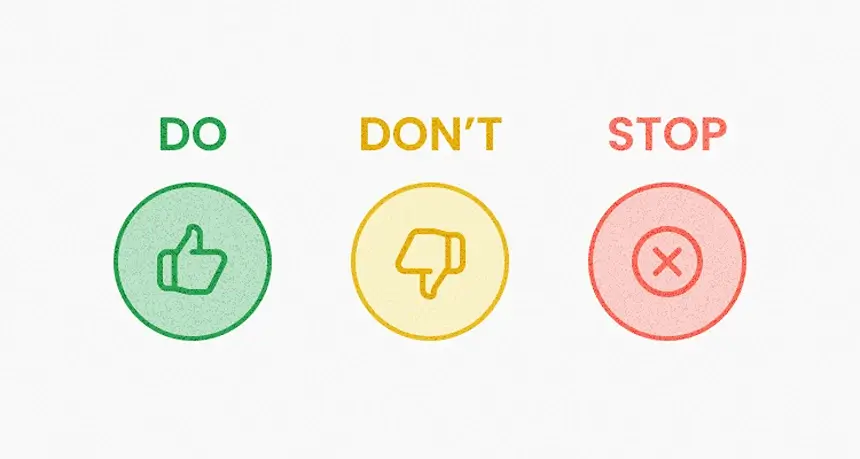
Here's a short checklist to help you prepare for an interview:
- Get to know your interviewee and the topic thoroughly.
- Consider what your audience wants to learn from the interview.
- Prepare a mix of open-ended, engaging questions.
- Outline the order of your questions to ensure a smooth conversation.
- Pick a quiet and suitable place for in-person or virtual interviews.
- Check your recording equipment, camera, and audio quality.
- Have notes, background info, and any visuals ready.
- Double-check interview timing with your guest.
- Start with a friendly ice-breaker question.
- Be ready to adapt if the conversation takes an unexpected turn.
- Engage with your interviewee's responses and ask for follow-ups.
- Conclude with a positive or light-hearted question.
- If needed, edit the interview for clarity and coherence.
- Show appreciation for their time and insights.
- Consider how the interview can be used across platforms.
In summary, the art of interviewing influencers in the crypto space involves thoughtful outreach, meticulous preparation, engaging question crafting, and creative repurposing of content. By mastering these aspects, you can use the potential of interviews to enhance your brand's authority, educate your audience, and create lasting connections within the crypto community.
More About Crypto Marketing:
Influencer Marketing For Crypto Projects
A Complete Crypto Marketing Guide
The Importance of Branding in Crypto Marketing
Content marketing for crypto projects
A Step-by-Step Guide to Direct Messaging in Crypto Marketing
11 Innovative Methods to Boost Engagement through Social Media
How Podcasts Can Help Your Business Grow
How To Create A Perfect LinkedIn Page For Your Business.
Successful Email Marketing For Crypto Projects.
What is a crypto Press Release and how to write it?
SEO Strategies For Your Crypto Business.
References:
"The Art of the Interview" by Lawrence Grobel
"How to Conduct an Interview" - The New York Times: https://www.nytimes.com/2013/09/09/business/media/how-to-conduct-an-interview.html
"The Art of the Interview" - Harvard Business Review- Link: https://hbr.org/2018/11/the-art-of-the-interview
"Interviewing Techniques and Tips" - Mind Tools - Link: https://www.mindtools.com/CommSkll/InterviewingTechniques.htm
FAQ
What is the significance of conducting interviews in crypto marketing?
Conducting interviews in crypto marketing holds great significance. It allows you to tap into expert insights, share valuable knowledge, and connect with your audience personally. You position your brand as knowledgeable and trustworthy by featuring industry leaders and discussing relevant topics. This approach boosts your credibility and fosters engagement, ultimately helping you stand out and thrive in the competitive crypto market.
How can interviews enhance the crypto marketing strategy?
Interviews can greatly enhance the crypto marketing strategy in several ways:
Expert Credibility: Featuring well-known figures in the crypto world adds credibility to your brand and positions you as a trusted source of information.
In-Depth Insights: Interviews allow for deeper discussions, sharing insider knowledge and unique perspectives that engage your audience.
Thought Leadership: By discussing industry trends and challenges, interviews establish your brand as a thought leader, attracting a dedicated following.
Engagement: Interactive interviews create a personal connection with your audience, fostering engagement and building a loyal community.
Diverse Content: Interviews offer diverse content formats – from videos and podcasts to written transcripts – catering to different audience preferences.
Visibility: Sharing interviews across platforms increases your online presence, reaching wider audiences and driving traffic to your crypto business.
Storytelling: Interviews enable storytelling, allowing you to humanize your brand, share success stories, and create relatable content.
Networking: Building relationships through interviews opens doors for collaboration, partnerships, and expanding your crypto network.
What are the key elements of a successful crypto interview?
The key elements of a successful crypto interview are:
1. Deep understanding of the interviewee, crypto topic, and industry trends.
2. Crafting open-ended, relevant questions that spark insightful discussions.
3. Organize questions logically for a smooth and coherent conversation.
4. Paying close attention to responses and asking follow-up questions for deeper insights.
5. Ensuring clear audio and visual quality, especially for virtual interviews.
6. Offering valuable insights, tips, and relevant information to the audience.
7. Promptly address any unexpected or intriguing points during the interview.
8. Displaying a genuine, friendly demeanor encourages the interviewee to open up.
9. Establishing a trustworthy environment that encourages candid responses.
10. Sharing the interview effectively across platforms to maximize reach and engagement.
What are some potential topics for crypto interviews?
Here are some potential topics for crypto interviews:
- Explain the fundamentals of blockchain, cryptocurrencies, and their impact.
- Discuss tips, risks, and best practices for investing in digital assets.
- Explore the latest trends, developments, and innovations in the crypto space.
- Organize conversations about legal aspects, regulations, and compliance in the crypto industry.
- Dive into the technical aspects of blockchain, smart contracts, and decentralized applications.
- Address cybersecurity, wallet management, and safeguarding digital assets.
- Explore the world of non-fungible tokens and their impact on art, gaming, and more.
- Discuss decentralized finance, lending, borrowing, and yield farming strategies.
- Analyze market trends, price predictions, and potential future scenarios.
- Explore how cryptocurrencies are being used for social good and philanthropy.
- Talk about educating people about cryptocurrencies, blockchain, and their benefits.
How can I promote my crypto interview effectively?
You can use the following strategies:
1. Share snippets, quotes, or teaser videos from the interview on platforms like Twitter, LinkedIn, and Instagram to pique interest.
2. Send out a newsletter to your subscribers, highlighting the interview's key takeaways and encouraging them to watch or listen.
3. Encourage interviewees to share the interview with their followers, expanding your reach within their network.
4. Partner with relevant crypto influencers or websites to feature the interview, reaching a broader audience.
5. Design eye-catching graphics or banners to promote the interview on your website, blog, and social media.
6. Include trending and relevant hashtags to increase discoverability on social platforms.
7. Share the interview in relevant crypto forums, groups, and communities to spark discussions.
8. Host a live watch party or discussion session where viewers can engage in real-time.
9. Upload the interview to video-sharing platforms like YouTube or convert it into a podcast episode for wider consumption.
10. Embed the interview on your website or create a dedicated landing page to make it easily accessible.
11. Consider running targeted ads on social media platforms to reach specific audience segments.
12. Create anticipation by posting teasers or countdowns leading to the interview release.
13. Convert the interview into a written transcript and share it on your blog or as a downloadable resource.
14. Respond to viewers' comments, questions, and feedback to foster engagement and build connections.
15. Break down the interview into smaller pieces of content for continuous sharing over time.

